Create onboarding programs in minutes with Disco AI—no instructional design expertise required
Accelerate Onboarding & Upskilling with AI-First Learning
Disco’s AI-first learning platform helps you scale transformational learning programs with or without a dedicated L&D team.
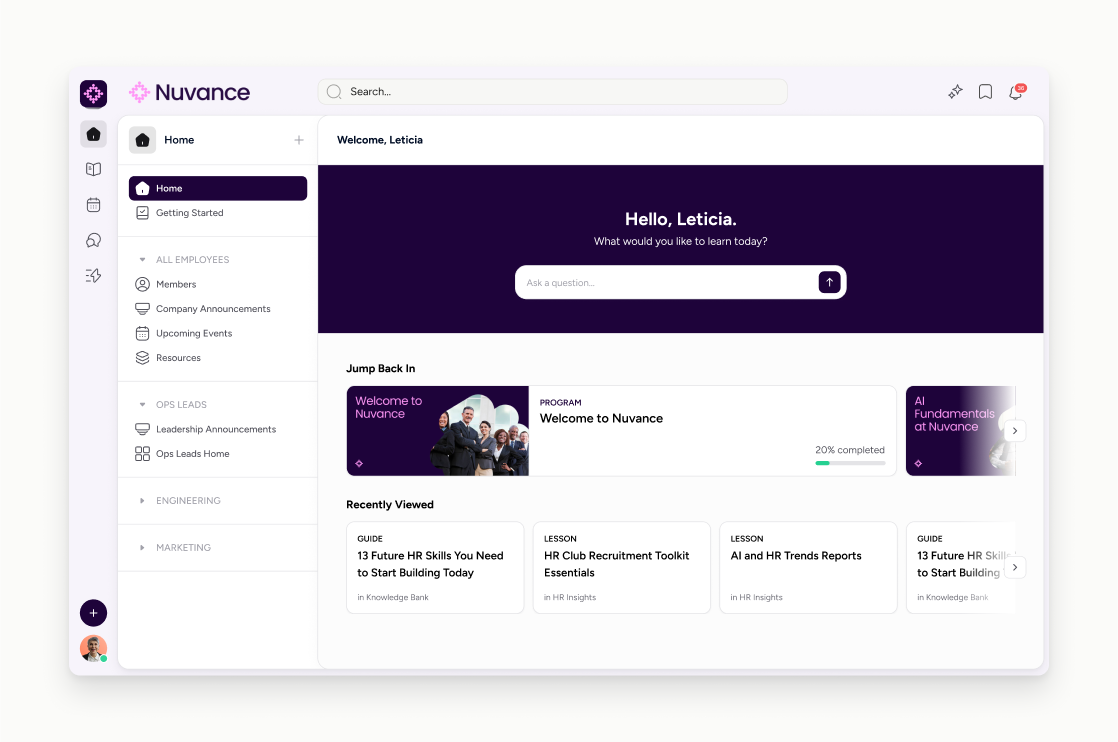











"Disco has enabled Monitor Deloitte to foster a virtual environment where current practitioners and alumni can connect in novel ways."

"Switching to Disco was one of the smartest decisions we’ve made”

Quickly build onboarding and upskilling programs your team will love
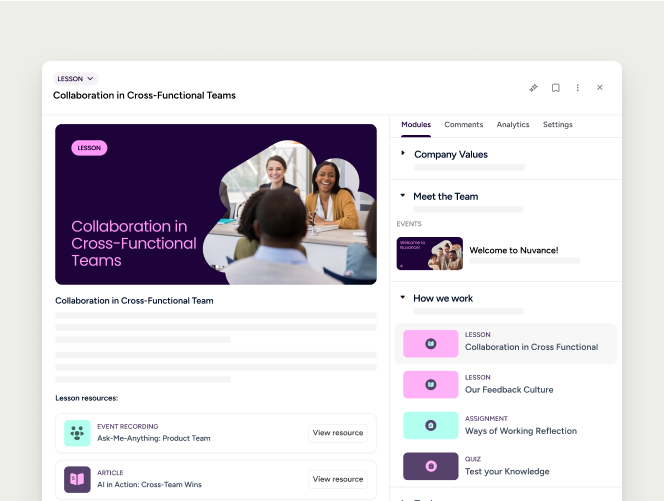
New hires get instant answers with AskAI—no digging through docs, no waiting on teammates
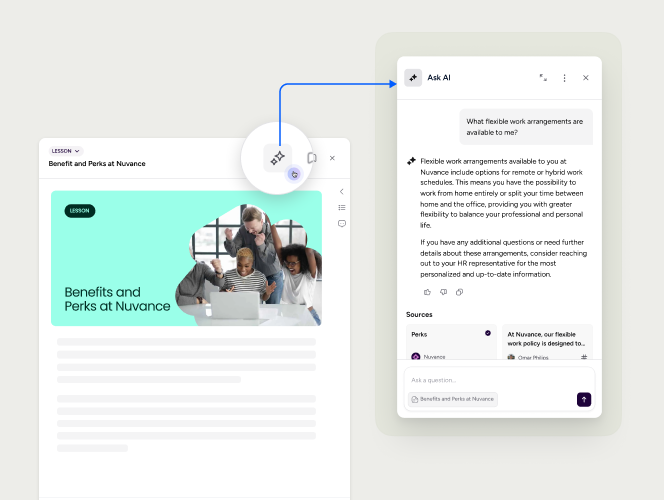
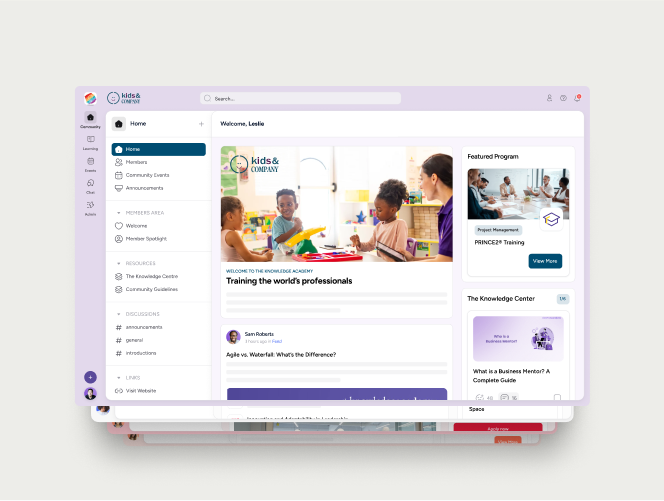
Keep training, policies, and resources in one place—no more scattered docs across Slack, Drive, or Notion
People who love Disco, really love Disco

“Switching to Disco was one of the smartest operational decisions we’ve made. We streamlined multiple tools and delivered a modern, AI-powered learning experience to 3,000+ staff—without increasing headcount. It’s transformed how we train, engage, and scale. Our employees love how easy it is to use—especially on mobile.”
CEO, Kids & Company
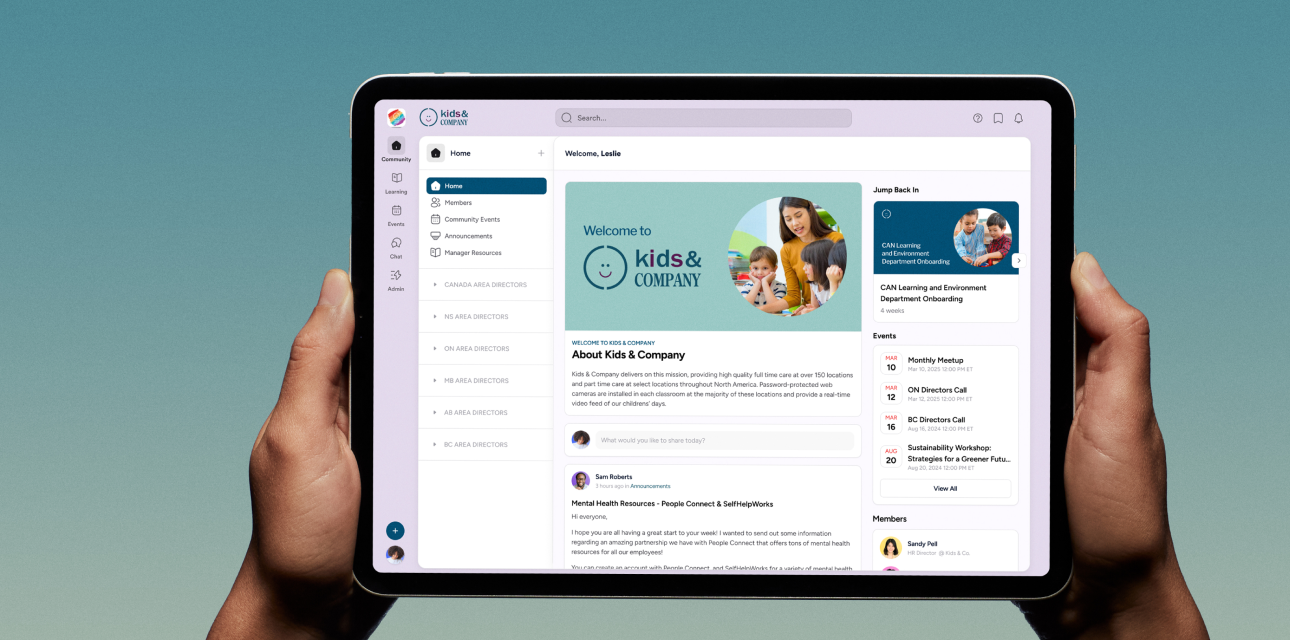
Why top companies choose Disco over alternatives

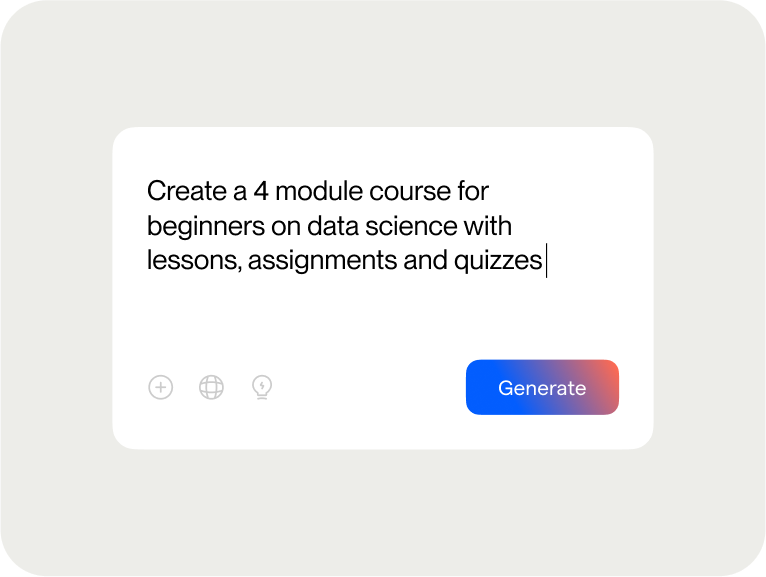
Turn your internal knowledge into tailored upskilling programs that adapt to every role and goal.
Track progress and certifications with clear insights into how your team is advancing.
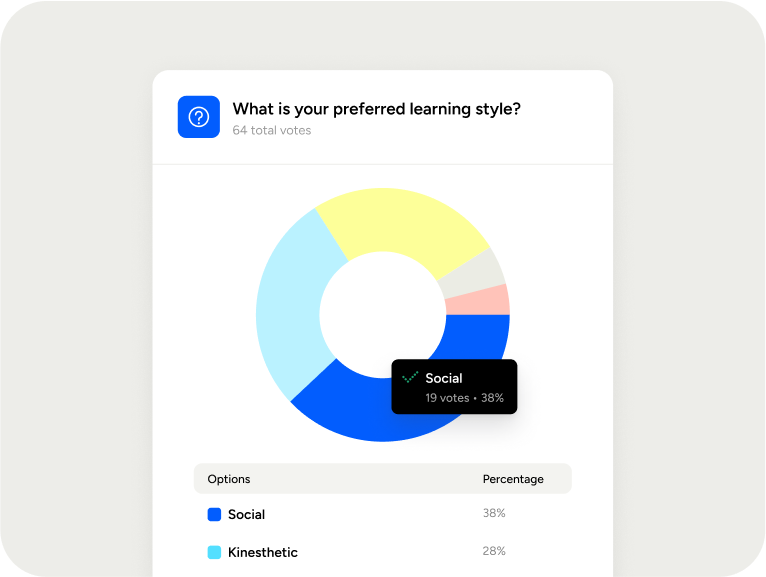
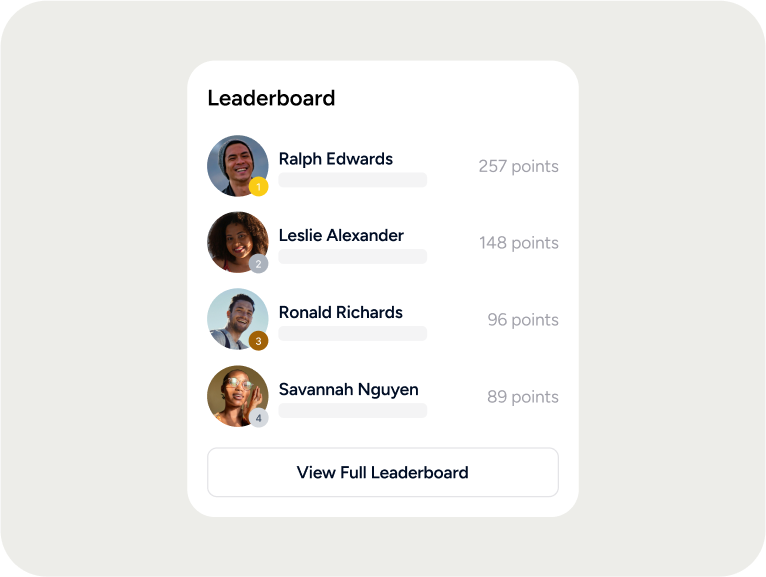
Foster a culture of growth with gamified, community-driven learning.
All the ways Disco accelerates learning

Employee Onboarding

Enablement

Compliance Training

Upskilling & Reskilling

Customer & Partner Training

Leadership Development
Connect the tools you already use to streamline your company





